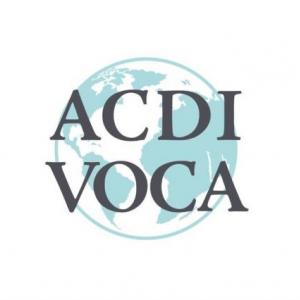Why Financing Alone Cannot Build Resilience: Lessons from Northern Kenya
Image

The pandemic and following economic shocks have underlined the importance of resilience at all levels of the economy, from national and local governments to your neighborhood business. Access to appropriate financial services is a key component of a resilient economy. Access to the right financial services at the right time can strengthen economic opportunities and support business growth. However, as we have seen both in the United States and in countries where we work, financing alone cannot build resilience, and its impact is diluted without building the capacity of the recipient and the enabling environment where they operate. International development programs can support resilience at a local level by providing non-financial support, such as technical assistance, to businesses and by providing growth financing to businesses who themselves provide resilience-building products and services.
Feed the Future Kenya USAID Kuza, funded by USAID and implemented by ACDI/VOCA, is one such program providing non-financial support to businesses and county governments in Northern Kenya and direct financial support via the Impact for Northern Kenya Fund. Conflict, pandemics, and natural disasters, particularly drought, are significant roadblocks to economic development in Northern Kenya and continue to emphasize the need for resilience-building activities.
Strengthening Local Groups through Non-Financial Support
To support the region’s enabling environment and small and growing businesses’ capacity to deal with shocks and stressors, USAID Kuza works with local institutions to serve the needs of the population as well as support the counties to develop a resilient enabling environment. In Northern Kenya, a resilient enabling environment must prepare for several possible shocks, including a response to the region’s ongoing drought. USAID Kuza has been supporting select counties in disaster risk management (DRM). Following an introductory training course, Kuza provided a technical writing workshop, during which the county officials and key stakeholders developed the county’s draft DRM policy and implementation framework, ensuring alignment with the Sustainable Development Goals, Sendai Framework for Disaster Risk Reduction, the Paris Agreement, and the draft national disaster risk framework in Kenya.
The counties then developed a draft DRM bill to legally enact the policy imperatives. Though not linked directly to finance, enaction of new DRM policies strengthens county governments and, thus, the enabling environment. To date, one county has passed their DRM policy and several others are on the way to doing so. With the new policies, counties will be able to better prepare for, and respond to, environmental shocks to the region.
Improving the Enabling Environment through Financing
On the financing side, the Impact for Northern Kenya Fund, implemented by USAID Kuza, is a $14-million wholesale financing vehicle that lends catalytic capital to financial institutions and pay-as-you-go service providers for on-lending to micro, small- and medium-sized enterprises (MSMEs) in counties within Kenya’s Frontier Counties Development Council . The Fund mobilizes public and private sector capital, improving the enabling environment to support MSME-driven development. The Fund identifies not only borrowers who meet their financial requirements but also those who generate significant social impact in their work, such as those serving underserved populations in rural areas. In addition to capital, the Fund also provides non-financial assistance to financial institution clients on developing and improving agricultural, rural, and mobile financial products, business planning, improved corporate governance, marketing, and business analytics.
Long-Term Resilience through Social Impact Investing
The Fund is also attracting borrowers who strengthen resilience in the communities they serve. Recently the Fund disbursed a Shariah-compliant loan of $500,000 to Solargen Technologies Limited, a pay-as-you-go solar energy, water, and irrigation solutions provider. Solargen’s mission is to serve underserved communities by keeping energy, water, and irrigation services affordable. The company’s offerings include off-grid solar power solutions, cold storage power solutions, solar irrigation systems, and solarizing drinking water. Throughout the period of the loan, the Fund will track the social impact of the loan and monitor the additionality that the funding supported.
Because Solargen’s founder and management team are Muslim, the Fund custom-designed a Shariah-compliant product for this transaction, using a profit-sharing model based on the company’s earnings before interest, taxes, depreciation, and amortization, instead of interest. Solargen uses a Shariah-compliant pay-as-you-go (“PayGo”) model of asset financing with its clients. In anticipation of the loan, Solargen recently established a branch in Wajir County to serve current and new clients in a region that often struggles with drought, poor access to markets, and food insecurity.
Though just examples, we see how both financial and non-financial support are necessary to build resilience across economies and communities. When used together, they can accelerate activities that support the resilience of regions.


